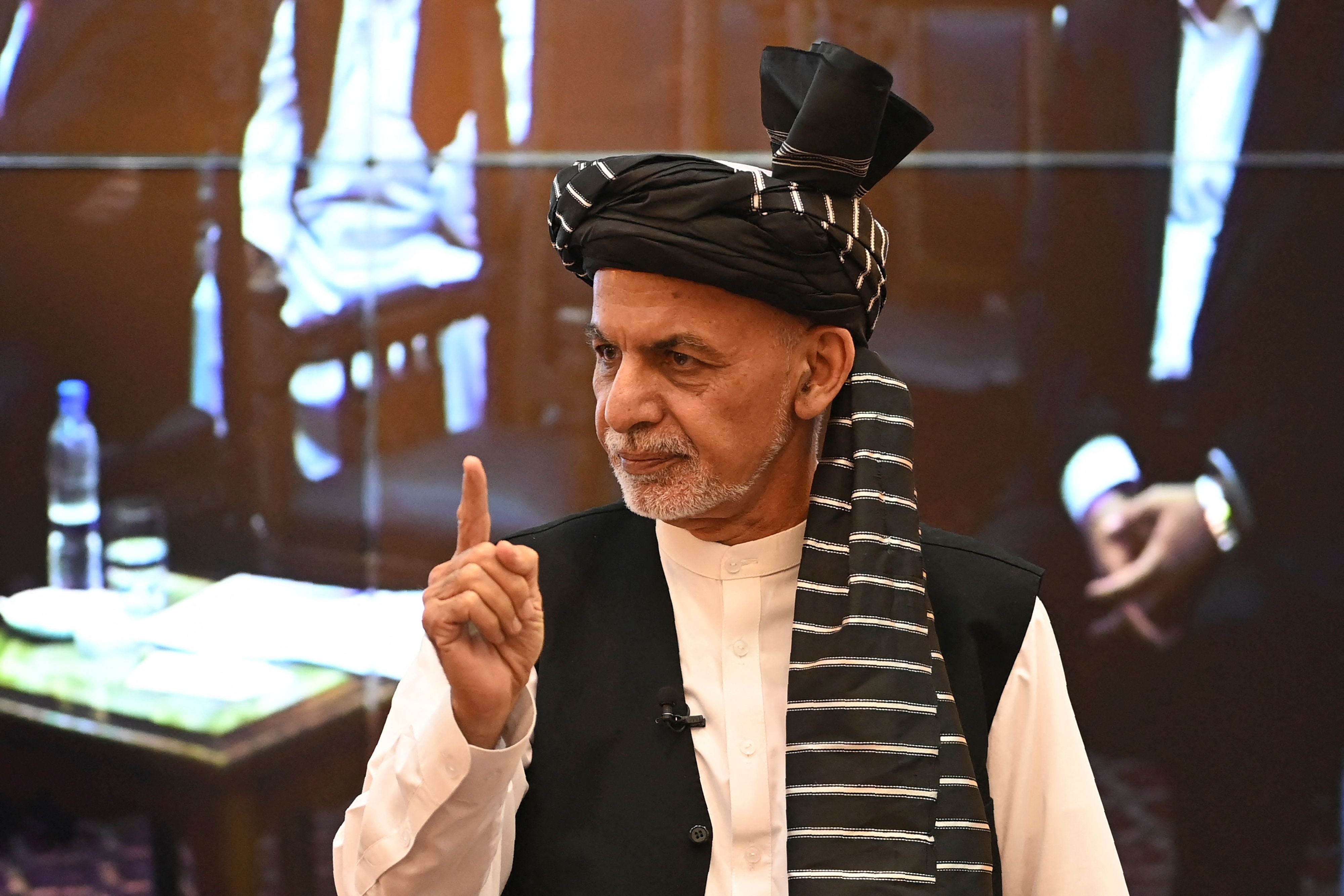Afghanistan: Ghani rallies warlords in the battle for Mazar-i-Sharif
The fall of Mazar-i-Sharif would mean the near-total loss of government control over the north and west of the country, writes Kim Sengupta in Kabul


The battle for Mazar-i-Sharif, a historic stronghold against the Taliban, has become the new focus of the Afghan conflict, with its fall likely to have a catastrophic strategic and symbolic impact on the government.
The president, Ashraf Ghani, flew to the city on Wednesday to hold talks with two former leaders of the Northern Alliance, the Uzbek and Tajik commanders Abdul Rashid Dostum and Atta Mohammad Noor, to bolster the fight against the insurgents.
This is a volte face for Mr Ghani who, with the active encouragement of the US and the West, had attempted to neutralise warlords and their militias, and to give primacy to the Afghan army and police.
However, the alarming pace of the Taliban advance has forced the president to turn to those he once sought to sideline. He had visited Ismail Khan in Herat before the veteran mujaheddin commander formed the militia, which has had a degree of success against the insurgency.
General Dostum, who had been receiving medical treatment in Turkey, had flown to Mazar ahead of units of his militia, which were airlifted from Kabul.
The fall of Mazar-i-Sharif, which had been one of the fortresses of the Northern Alliance in the long years of the civil war, and is a traditional financial centre, would mean near-total loss of government control over the north and west of the country.
It would also cause concern in the neighbouring states of Tajikistan and Uzbekistan, which have their own Islamist militancy problems. The Afghan Taliban recently handed over five districts inside Afghanistan to the Tajik Taliban, whose presence in the border area has seen the government in the capital of Dushanbe send 30,000 troops and carry out military drills with Russian forces.
In the northern city of Kunduz, hundreds of government soldiers who had been forced back to the airport gave up to the Taliban, with officers saying they saw no chance of help arriving. Amruddin Wali, a member of the Kunduz provincial council, said soldiers, police and resistance forces surrendered to the Taliban “with all their military gear”.
Kunduz had been occupied twice before by the Taliban, but they had failed to hold on to the city on either occasion. General Dostum said “the Taliban have come to the north several times but they were always trapped”.
The Taliban momentum, however, has kept going, with the group seizing three more provincial capitals —Farah in the west, Faizabad in the north-west, and Pul-e-Khumri, in the north – taking the total to nine overall.
Pul-e-Khumri is just two hours’ drive from Kabul, and its fall has undoubtedly had a psychological impact in the capital where its loss, and those of other cities, is now a constant source of conversation. “It is like people discussing a football match and the score is now Taliban 6, the government nil,” said Rahimtullah Khan, a 22-year-old student. “But this is very serious, they seem to be getting closer and closer.”
People from other parts of the country, near and far, are pouring into Kabul. While Mr Ghani flew to Mazar, a local airline laid on 13 extra flights from the city to Kabul for those trying to flee. All flights from Herat are full until the weekend.
Others had arrived on foot. Mohammed Ghulam Abbasi had walked from a village 20 miles west of Kabul with his family of seven. “The Taliban came for three nights and we decided to leave. They are getting closer, but it is still better here than where we were,” he said. “We are sleeping on the floor of a pharmacy now, but my cousin will come and collect us. What happens after that I do not know. I had a shop where we lived, but we can’t go back there.”
Those who can afford to have been trying to go abroad with their families as the Taliban threat looms. However, difficulties obtaining visas, combined with Covid restrictions, have made journeys extremely difficult.
For example the UAE, a popular and accessible destination, has stopped entry for people from Afghanistan because of the pandemic. That may change next week and a mini exodus, at least of those who can get seats on flights, is expected to take place.
It has long been apparent that the Taliban strategy was to attempt to cut off Kabul by not just focusing on its support base, the Pashtun south, but also the north, east and west.
There have been reports in a number of US news outlets that Kabul could be captured by the Taliban earlier than expected. The Washington Post quoted a defence official, unnamed, saying the Afghan capital could fall in three months. According to Reuters news agency, a defence official said that it could be isolated in 30 days.
US and British military officials maintain that what happens next will be determined by how far the US continue to use air strikes. The Americans have already pulled out of bases in Afghanistan, with “over the horizon” missions now coming from other countries. But these two missions are due to end on 31 August in the agreement in Qatar with the Taliban.
There is scope for continuing strikes under the auspices of counter-terrorist operations, but it remains unclear whether president Joe Biden will exercise this option.
Join our commenting forum
Join thought-provoking conversations, follow other Independent readers and see their replies
Comments
Bookmark popover
Removed from bookmarks